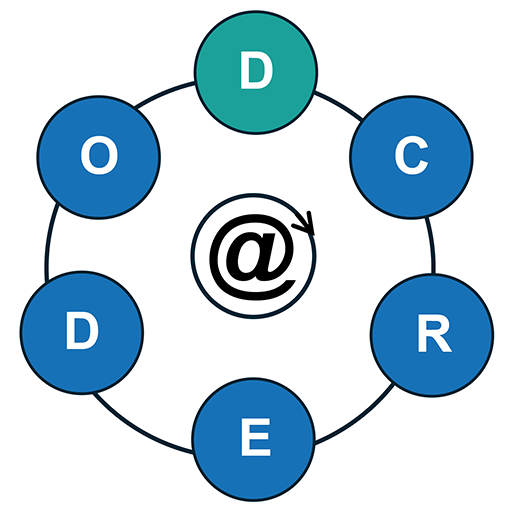Rotterdam, known for its vibrant international atmosphere and modern architecture, is also a leading center of innovation in healthcare and education. At the heart of the city stands the Erasmus Medical Center (Erasmus MC), the largest and one of the most productive academic medical centers in the Netherlands.
Erasmus MC is affiliated with Erasmus University Rotterdam and serves as a hub for cutting-edge research, high-quality patient care, and world-class education. With over 15,000 staff and thousands of students, Erasmus MC offers a wide range of programs in medicine, clinical technology, and health sciences, including Bachelor’s, Master’s, and PhD programs. It is recognized internationally for its strengths in public health, biomedical research, and clinical training.

The Institute of Medical Education Research Rotterdam (iMERR) conducts high-impact research across the full continuum of medical education, from student selection and undergraduate training to the development of practicing health professionals. Its mission is to advance the quality and accessibility of health professions education through rigorous, socially engaged, and practice-informed research. iMERR focuses on two key themes: Clinical Reasoning & Patient Safety, ensuring that future doctors learn to diagnose and make decisions effectively and safely. And: Selection & Assessment, promoting fair access to medical education and supporting the development of a diverse, competent, and resilient healthcare workforce. iMERR’s work has informed national policy discussions, contributed to medical specialty guidelines, and influenced international debates on educational equity, student wellbeing, and academic policy.
Closely connected to teachers, students, and curriculum leaders at Erasmus MC, iMERR plays a central role in evidence-informed educational innovation, both locally and globally. Its researchers regularly share their findings at international conferences and collaborate with institutions worldwide to shape the future of medical education. Looking ahead, Erasmus MC and iMERR remain committed to shaping a more adaptive, inclusive, and research-driven future for health professions education.

Laura Zwaan, PhD, is an Associate Professor at iMERR and the Erasmus MC team lead within the D-CREDO project. She holds a background in cognitive psychology (MSc, 2005) and epidemiology (MSc, 2010) and earned her PhD from VU University Medical Center in Amsterdam in 2012 with a dissertation on Diagnostic Reasoning and Diagnostic Error in Medicine.
Laura’s research focuses on clinical reasoning, diagnostic error, and medical education. She is committed to reducing diagnostic errors through both fundamental and applied research. Her interdisciplinary training allows her to employ a wide array of methods — from observational studies and record reviews to experimental research — making her work highly adaptable and impactful.
Within D-CREDO, Laura brings her expertise to the forefront, guiding the Erasmus MC team in advancing digital clinical reasoning education across Europe.
Charlotte van Sassen, MD, PhD, is a researcher and general practitioner at iMERR and the Department of General Practice at Erasmus MC, where she recently completed her PhD on improving clinical reasoning education using malpractice claims and diagnostic errors. This project was a collaboration between iMERR and the Department of General Practice, reflecting her strong focus on patient safety and diagnostic improvement in practice.
In addition to her work on diagnostic error, Charlotte’s research interests extend to the use of Artificial Intelligence (AI) in both medical education and clinical practice. With a fellowship from the Community for Learning and Innovation of the Erasmus University, she is currently researching the use of AI for personalized feedback in clinical reasoning. Moreover, she is a fellow at the Institute for Healthcare Improvement, where she is strengthening her leadership in healthcare quality and safety.
Alongside her scientific work, she lectures at the Department of General Practice and practices as a general practitioner. Charlotte is also a member of the D-CREDO consortium, contributing to research and innovation in digital clinical reasoning education across Europe.
Jonas Verdonschot, MSc, is an educationalist and PhD candidate at Erasmus MC, with a background in teaching and educational sciences. He holds a Master’s degree in Educational Sciences from the University of Amsterdam and previously taught history in secondary schools before transitioning to higher education.
Since 2021, Jonas has worked at Erasmus MC, contributing to the renewal of both the Bachelor’s and Master’s programs in medicine. His work focuses on curriculum development, teacher support, and the pedagogical integration of digital tools to enhance clinical reasoning education.
In 2025, Jonas began his PhD research on the use of digital health tools in clinical reasoning education. As a member of the D-CREDO consortium, he played a key role in the rapid review, the formulation of consensus-based learning objectives, and led the creation of the consortium’s white paper, laying the conceptual and methodological foundations for the development of the learning units.
Stay connected with D-CREDO and follow our journey on LinkedIn for more updates, insights, and stories.





